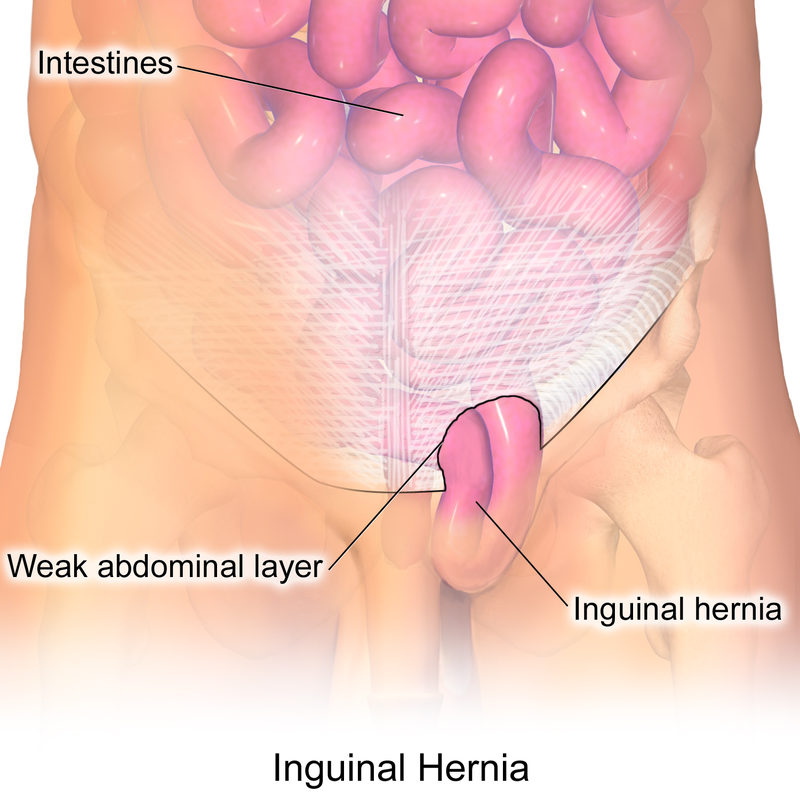Inguinal Hernias (Groin Hernias)
A hernia occurs when tissue bulges through an opening in the muscles. Any part of the abdominal wall can weaken and form a hernia, but one of the most common sites is the groin. Two of the most common types of groin hernias are inguinal hernias and femoral hernias. Groin hernia operations are one of the most common operations we perform.
COMMON SYMPTOMS
A bulge in the groin or scrotum area, especially with straining or coughing.
Pain, discomfort, numbness or pressure at the hernia site.
Sharp abdominal pain and vomiting can mean the intestine is strangulated. This is a surgical emergency and immediate treatment is needed.
COMMON TESTS
You may need lab work or imaging studies such as an ultrasound or CT scan before your operation.
OPEN HERNIA REPAIR
An incision is made near the hernia site. The hernia is repaired with mesh or by suturing the muscles closed. The operation usually takes about an hour. Most patients go home the same day of the operation.
LAPAROSCOPIC HERNIA REPAIR
The hernia is repaired by mesh inserted through instruments placed into small incisions in the abdomen. The abdomen is inflated with carbon dioxide gas to make it possible to see the internal organs. Most patients go home the same day of the operation.



